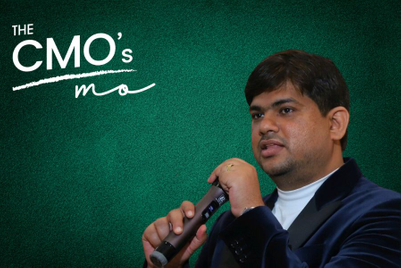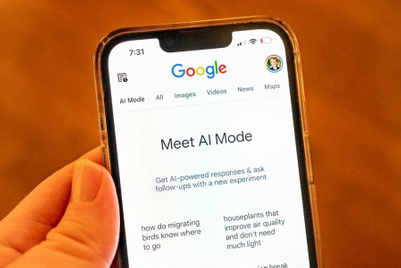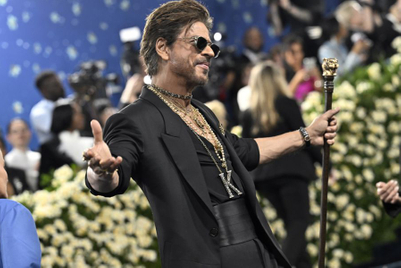
Last Friday, brand consultant Harish Bijoor sparked a social media trend that gained unexpected traction. His #StareAtSpouseChallenge encouraged followers to post pictures of themselves gazing at their spouses, a cheeky retort to remarks made by Larsen & Toubro (L&T) chairman S.N. Subrahmanyan.
Subrahmanyan had suggested employees spend less time “staring at their wives” and more time at work, advocating for a gruelling 90-hour workweek. While some participated light-heartedly, brands like Wakefit turned the moment into clever campaigns. Wakefit’s digital ad, part of its Gaadagiri series, quipped, “Hustle culture nahi, inhe Wakefit ka gadda dilao!”—mocking the glorification of overwork while promoting better sleep.
Subrahmanyan’s comments, however, ignited heated debate. Critics called out the outdated glorification of overwork, a theme that has repeatedly surfaced in corporate India.
Parallels were quickly drawn to Infosys co-founder Narayana Murthy, who in 2023 suggested India’s youth should adopt a 70-hour workweek to match global productivity standards. Both statements have faced backlash for being out of touch with evolving workplace values.
Leadership rhetoric versus workforce realities
Subrahmanyan’s remarks highlight a growing disconnect between traditional corporate leaders and the modern workforce. While L&T defended the chairman’s comments as a call for dedication to nation-building, many saw them as tone-deaf in an era prioritising employee well-being.
Mahindra Group chairman Anand Mahindra, offering a more balanced perspective, noted the debate should focus on productivity, not hours. “You can change the world in 10 hours,” he said, while speaking at an industry event, joking that he enjoys staring at his wife.
The advertising and marketing industry, known for its demanding schedules, is no stranger to overwork. Shruti Juneja, a senior media buyer, shared her experience of burnout during her first agency job, where late nights and early mornings were routine.
“The grind culture was glorified, and overwork was normalised,” she recalled. The toxic environment led her to quit within a year. Today, she prioritises work-life balance and refuses to accept roles that promote hustle culture.
Similarly, Monish Khubchandani, a freelance PR professional, recounted how long hours took a toll on his mental health during his agency tenure. “I skipped meals, missed family events, and was constantly anxious about work,” he said. Eventually, he left the corporate grind to freelance, valuing flexibility over constant hustle.
The myth of productivity through overwork
The belief that long hours equate to loyalty and commitment remains entrenched in many corporate cultures. However, research contradicts this notion.
Excessive work hours lead to burnout, reduced productivity, and declining mental health. A 2021 study by the World Health Organisation found that overwork was linked to increased risks of stroke and heart disease.
45-year-old TableSpace founder Amit Banerji, died earlier this year, due to cardiac arrest. He joined a list of young entrepreneurs and CEOs who passed away prematurely from heart-related issues over the past few years, including Drums Food International's founder Rohan Mirchandani, PepperFry's co-founder and CEO Ambareesh Murty and Royal Enfield's CEO Rudratej Singh.
Experts argue that long hours, which are often glorified, are shortsighted measure of productivity. “This rhetoric reflects a lack of understanding of what drives modern employees,” said a brand consultant who works with leading agencies. “High-pressure environments not only reduce efficiency but also damage brand reputation, particularly in an era of cancel culture.”
Agencies, like other workplaces, thrive on creativity and innovation—qualities that cannot flourish in an overworked, fatigued workforce. Companies should focus on building systems that measure outcomes rather than hours logged, emphasising quality over quantity.
Redefining productivity in creative industries
For advertising and marketing agencies, where innovation is a key driver of success, prioritising employee well-being is not just ethical but strategic. Agencies must move beyond outdated metrics of success and cultivate environments that encourage balance, creativity, and collaboration.
The pandemic reshaped how professionals view work-life balance, making flexible schedules and mental wellness essential for talent retention. Agencies that fail to adapt risk losing top talent to competitors who prioritise these values. “Employees need time to rest, recharge, and pursue personal growth. This ultimately benefits the organisation as well,” said the anonymous brand consultant.
Brands like Wakefit demonstrate how companies can approach workplace culture with humour and relevance. Their campaign poking fun at hustle culture resonated with audiences, showing the power of aligning brand messaging with contemporary values.
A call for a new leadership paradigm
The backlash against Subrahmanyan’s comments underscores the need for a shift in leadership thinking. Leaders must recognise that productivity stems from well-rested, motivated employees—not from clocking excessive hours. Mahindra’s remarks encapsulate this perspective: the focus should be on the impact of work, not its duration.
In the advertising industry, where deadlines are tight and client demands high, the temptation to normalise overwork is strong. Yet, fostering a sustainable work culture is critical. Agencies should prioritise mental health initiatives, flexible work arrangements, and clear boundaries between professional and personal life.
As the workplace evolves, so must leadership philosophies. The days of glorifying overwork as a badge of honour are fading, replaced by a focus on sustainable practices that prioritise employee well-being. This is particularly true for creative industries, where a thriving workforce drives innovation.
The controversy sparked by Subrahmanyan’s remarks serves as a reminder that leadership rhetoric matters. Companies and agencies must lead by example, rejecting the outdated hustle culture and embracing values that resonate with today’s workforce. In doing so, they can foster environments that are not only more humane but also more productive.
By redefining productivity and championing workplace balance, the advertising and marketing industry can set a standard for others to follow. After all, creativity flourishes when minds are rested, not overworked.



.jpg&h=334&w=500&q=100&v=20250320&c=1)
.jpg&h=334&w=500&q=100&v=20250320&c=1)
.jpg&h=334&w=500&q=100&v=20250320&c=1)

.jpg&h=334&w=500&q=100&v=20250320&c=1)

.jpg&h=334&w=500&q=100&v=20250320&c=1)
.jpg&h=334&w=500&q=100&v=20250320&c=1)
.jpg&h=334&w=500&q=100&v=20250320&c=1)

.jpg&h=268&w=401&q=100&v=20250320&c=1)
.jpg&h=268&w=401&q=100&v=20250320&c=1)


.jpg&h=268&w=401&q=100&v=20250320&c=1)


